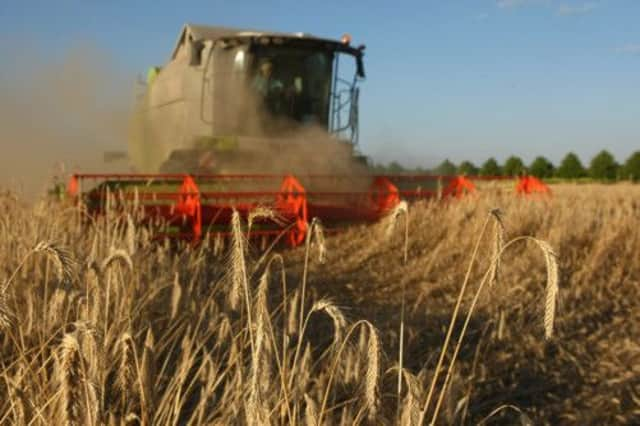Scots must weed out crop problems


Stating that a fundamental re-think was required over the next five years, Bill Clark, commercial technical director at NIAB, told an arable farming conference in Perth that the build-up of resistance to current sprays amongst both diseases and weeds would drive the change.
With no major innovations likely to be unveiled on the chemical control front within the next ten years, he warned that farmers would have to do their utmost to get the most out of their current arsenal:
Advertisement
Hide AdAdvertisement
Hide Ad“And this will mean taking a pro-active approach by making full use of any strategies that will slow down the build up of resistance, rather than reacting after it has happened,” said Clark.
Addressing an audience of farmers at the conference, organised by crop production specialists Hutchinsons, he said that these included measures which, only a few years ago might have been considered “wacky” by many in the industry.
As well as using tank mixes, crop rotations and both mechanical and cultural means he said that field-scale biological control measures together with plant health products and host defence activators all had a role to play – a fact reinforced by the recent purchase of bio-control companies by major agrochemical corporations.
“We’re looking at these measures becoming standard management practices within the next three to five years,” predicted Clark.
He added that the current attitude in the EU to crop-protection products was severely limiting the ability of farmers to diversify their crop protection products - as not only were established chemicals being banned but the development and registration of now ones was being stifled:
“And with fewer products being available, the pressures for resistance will build up.”
His thoughts were echoed by weed biology specialist John Cussans who said that, in many areas of the country, weeds were now becoming resistant to a whole cocktail of sprays. “Black grass has long been recognised as a major problem down south and Italian ryegrass is also a growing issue,” he said.
But he added that although these two weeds had not been a major issue north of the Border, resistance had also been found in chickweed – the “Scottish curse” – and in poppies over a good deal of the country.
Advertisement
Hide AdAdvertisement
Hide AdDick Neale, technical manager with Hutchinsons, said that farmers could even be forced to change their cropping patterns in order to address these issues.
“Cultural control across the rotation offers one of the few resistance-proof methods of control – but we have to adopt the right option,” he said. “At the moment crop establishment is the main criteria used for our cultivations – but we need to look at making weed control an important –or perhaps even the main – reason for our choices.”
Looking at the potato crop, Scottish Agronomy specialist Eric Anderson said that even something as simple as getting the correct choice of spray nozzles could benefit both disease control and the environment through better targeting of sprays.